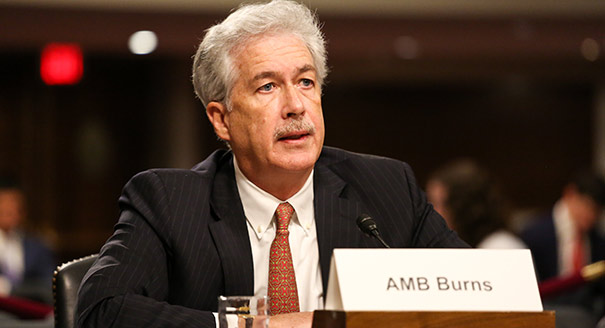Source: U.S. Senate Committee on Armed Services
Ambassador Burns testified in front of the U.S. Senate Armed Services Committee on “U.S. Policy and Strategy in Europe.”

The challenge before the United States is to manage, without illusions, a difficult and combative relationship with Russia.
Source: U.S. Senate Committee on Armed Services
Ambassador Burns testified in front of the U.S. Senate Armed Services Committee on “U.S. Policy and Strategy in Europe.”
For four years, the G20’s emerging economies used the rotating presidency to set an unprecedented agenda. With the United States now at the helm, that’s about to dramatically change.
Understanding and shaping the links between the local and global is a matter of storytelling.
OpenAI has waded into the state’s process by releasing a ballot initiative on safety controls for AI companion chatbots.
Former agency officials discuss how reforms could reshape the agency and how states should prepare.
Beset by an increasingly hostile United States, internal divisions, and the threat of Russian aggression, the EU finds itself in a make-or-break moment. U.S. President Donald Trump calls it a decaying group of nations headed by weak leaders. Is Europe able to prove him wrong?